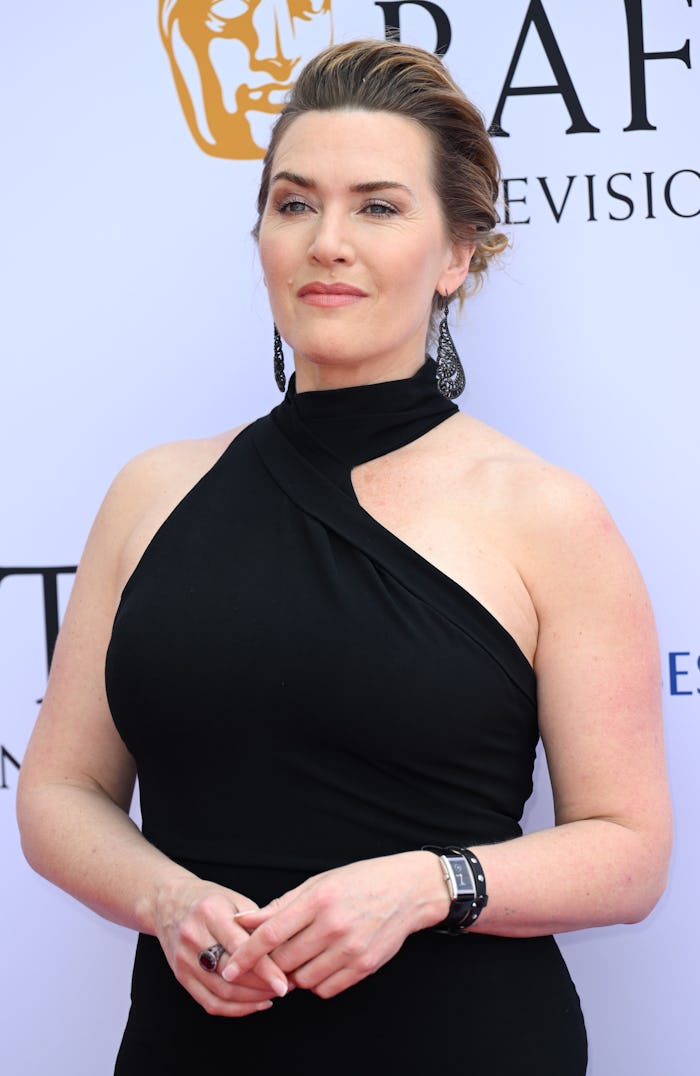Entertainment

Kate Winslet Bans Her Kids From Social Media, & Here Are 5 Reasons She's Not Wrong
If you’ve ever peeked at a tween sister or cousin’s Instagram feed, you know junior high social media can be an overwhelming place. Sounds like that’s in part why Kate Winslet doesn’t let her kids use social media, the Oscar-winning actress told the UK’s Sunday Times. Winslet plays Steve Jobs’ confidante Joanna Hoffman in the Jobs biopic currently in theaters, so she’s being asked about her own relationship with technology often these days. Winslet said that while she considers technology "an incredibly powerful educational resource,” she thinks it’s too easily abused and has such potentially negative effects on kids that she doesn’t allow her children to use it.
This isn’t an issue Hollywood stars weigh in on often, and I personally find myself resisting talking, reading, or even thinking about how screen time might affect my kid. That’s probably partly because I don’t want to think about the time when I’m going to have to limit and protect her activity on social media and partly because her and all kids’ exposure to it feels inevitable. So I’m impressed with Winslet for thinking about this carefully, taking a position, and apparently holding her ground (which can’t be easy with a 15-year-old daughter and 11-year-old son at home). And the thing is, if you look at the ample data on this subject, Winslet is probably right. Here are 5 reasons she’s definitely not wrong:
Screens Probably Aren’t Great For Kids To Begin With
There’s a difference of opinion about how devices and screens affect kids. The American Academy of Pediatrics recommends no “television or entertainment media” for kids under 2 (who presumably aren’t spending hours on Snapchat anyway), it advises no more than two hours a day for older kids and teens. According to the organization, "Studies have shown that excessive media use can lead to attention problems, school difficulties, sleep and eating disorders, and obesity."
Others argue that those recommendations are based more on studies of TV and video game consumption, and there’s no good evidence that screens themselves hurt kids. But the recommendations also state, rather stodgely, that “In addition, the Internet and cell phones can provide platforms for illicit and risky behaviors." Winslet isn’t wrong to be concerned about how technology impacts her kids.
Social Media Isn't Awesome For Self-Esteem
When an adolescent girl shares a selfie, Winslet told the Times, "she's thinking about what some other person thinks who she doesn't even know.” There’s probably no more immediate proof of this than the fact that, in a Youtube video posted Monday, teen Instagram model Essena ONeill announced she’s quitting social media because she was “consumed by it” and “I was so hungry for social media validation.” ONeill deleted most of her photos and went through the remaining ones editing the captions to reveal the posing and preparation involved and what she was actually feeling — nothing good — when a given photo was taken.
Pretty decent proof that Winslet is right.
...And It Isn't Helping Anyone's Body Image
Along with encouraging low self-esteem and a reliance on external validation, social media is also known to encourage negative body image and a constant quest to perfect a user’s physical appearance. The way tween and teen girls use social media now, "all they will ever do is design themselves for people to like them,” Winslet said, and there is ample evidence of this. Tumblr, Instagram, and Pinterest are full of thinspo despite past efforts on the part of each platform to regulate this content more.
It Encourages You To Give Your Experiences Away
One reason Winslet doesn’t let her 15-year-old daughter, Mia, use Instagram is that, as she put it, "The second you share that memory, that's not your memory anymore. You've given it away." You could argue that there’s something nice about sharing your experiences with a wider circle of friends than you interact with in person daily and that online connections have made many individuals, especially those who feel like outsides in their immediate surroundings, feel less alone. Still, Winslet makes a compelling point. Remember when you had experiences as a kid and maybe took one photo that your mom developed later on, and the photo only existed to commemorate your experience, not provide content in other people’s streams?
It’s Rough On Kids’ Mental Health
Multiple studies have indicated that social media use is associated with increased mental health issues in kids and teens. A 2015 study out of the University of Glasglow showed that teen social media use at night led to less quality sleep and higher anxiety.
A British survey of 20,000 kids in the UK showed that girls spend more than three hours a day on social media in 2012 and 2013, and linked social media use to emotional, conduct, and friendship issues.
All of which points to the fact that actually, social media probably isn’t the best thing for kids. There’s always the argument that limiting kids’ screen time or social media use keeps them from knowing how to use those tools doesn’t really hold water. Kids have proven how quickly they latch on to new technology. Building a stable, foundational sense of self takes longer and is much harder to do later on. Obviously every parent ultimately makes their own decisions on this and every other front, but Winslet has a lot of data and common sense backing up hers.